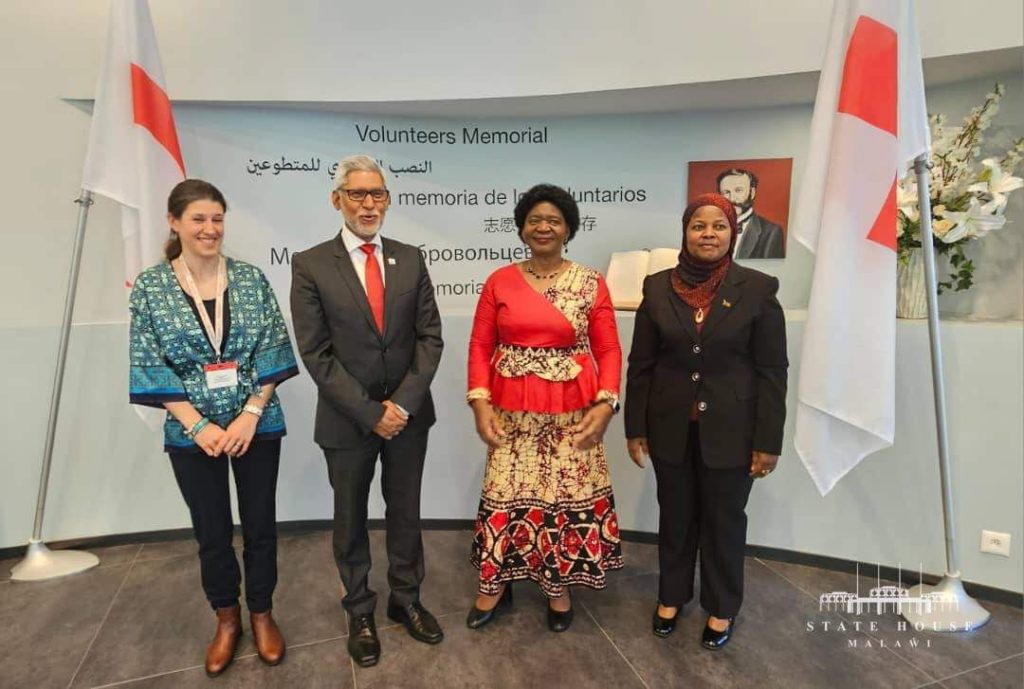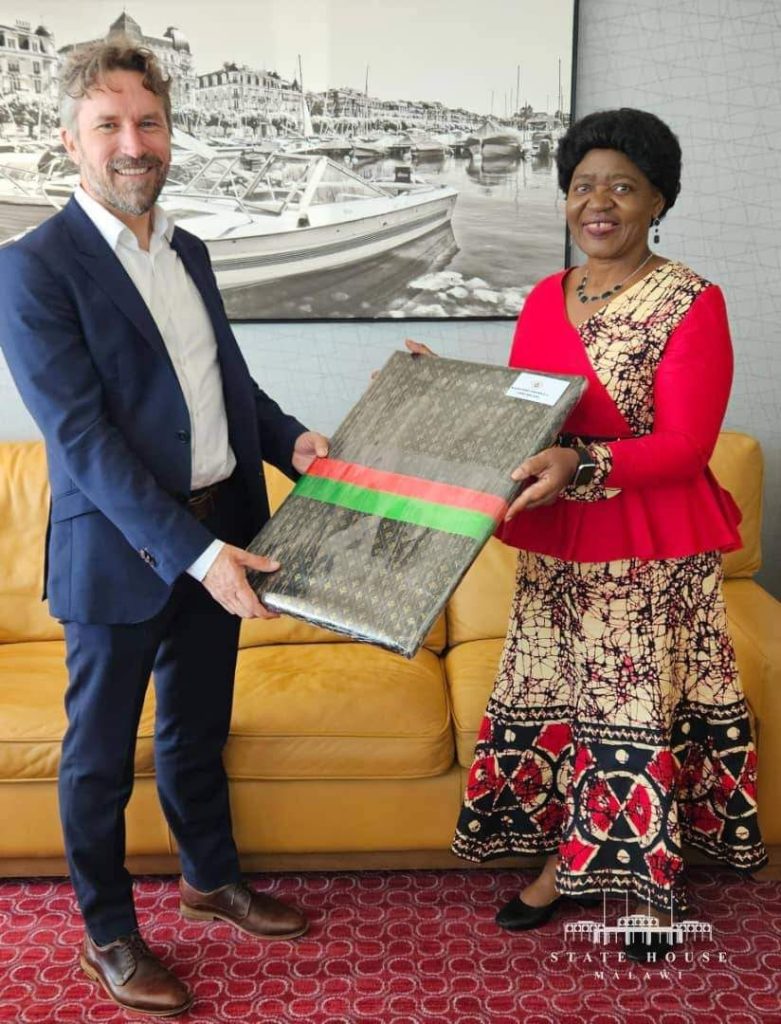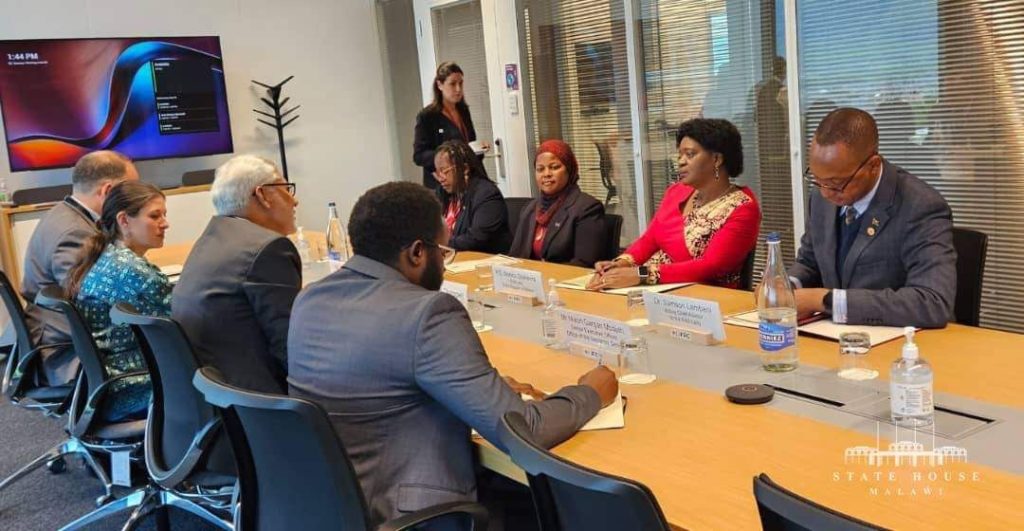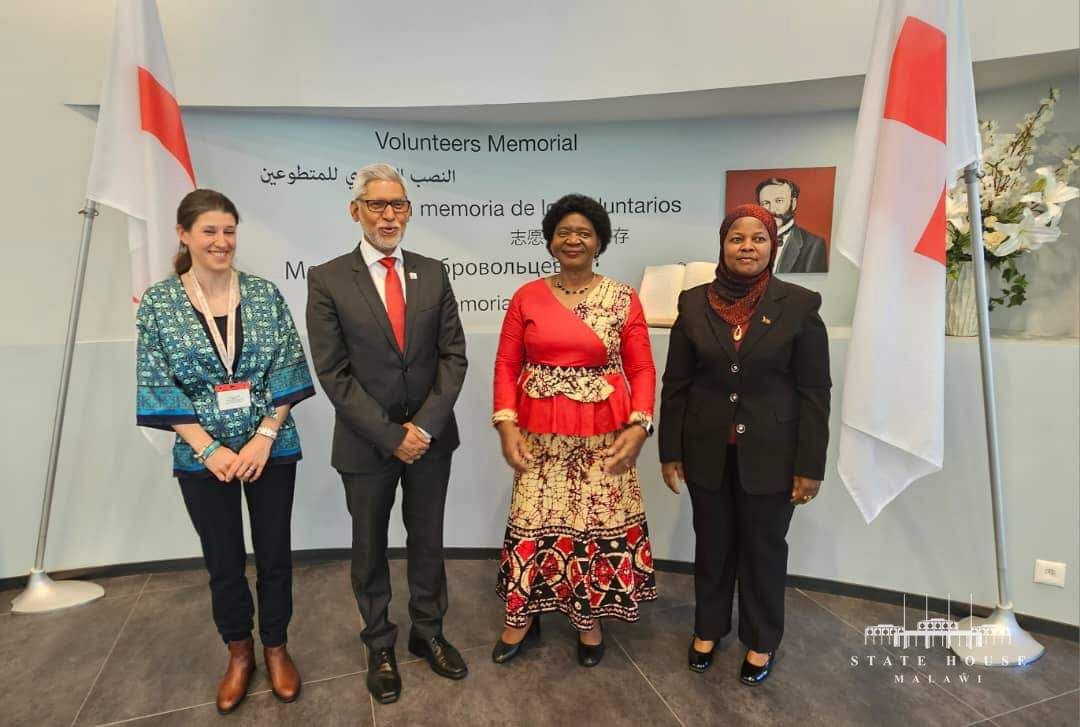By Durell Namasani
First Lady Madame Monica Chakwera has expressed her gratitude for the good work that the International Federation of the Red Cross and Red Crescent (IFRCRC), through the Malawi Red Cross Society, is doing in Malawi, especially after Cyclone Freddy and the recent floods in the country.
She made these remarks on Tuesday, after paying a courtesy call to the Secretary General of the International Federation of the Red Cross and Red Crescent (IFRCRC), Jagan Chapagan, at the IFRC Secretariat in Geneva, Switzerland.
Madame Chakwera reiterated her passion towards the work done by the Red Cross, particularly in ensuring that the education of the girl child is not interrupted during times of crisis, considering that girls normally have a limited number of years they can adequately attend school.

She further assured the Secretary General of her commitment to collaborate with IFRCRC in humanitarian programs, considering that the world is still facing many crises.
“The crises Malawi is experiencing are beyond what the country prepared for,” she said.
During the meeting, Chapagan and his team from the Health and Education departments highlighted different programs being implemented in Malawi through the Malawi Red Cross Society.
He indicated that among priority areas which IFRCRC is focusing on include support for crisis-related challenges, strengthening the capacity of the Red Cross in Malawi, collaboration with the Ministry of Health on disaster preparedness and planning for re-position preparedness on disaster with the Global Fund.
He also indicated that plans to scale up community-based crisis-related response, mitigation, and preparedness are underway.
On the sidelines of education, the IFRCRC through the Danish Red Cross with funding from the European Union provides support to schools to be better and safer places with continued education provision during crises to avoid the disruption of education services as most times, education facilities become temporary places of accommodation.
He stated that plans in education include climate change-related activities – greening schools to be more climate change resilient, assisting in ensuring agriculture practices that are climate resilient, and first aid awareness for teachers and pupils, young people and students, including behavioural change programs and family support (the youth to be advocates for change in families and communities); anticipatory actions – preventing loss and damage, setting up places within schools for continued education provision during crises and disasters.





